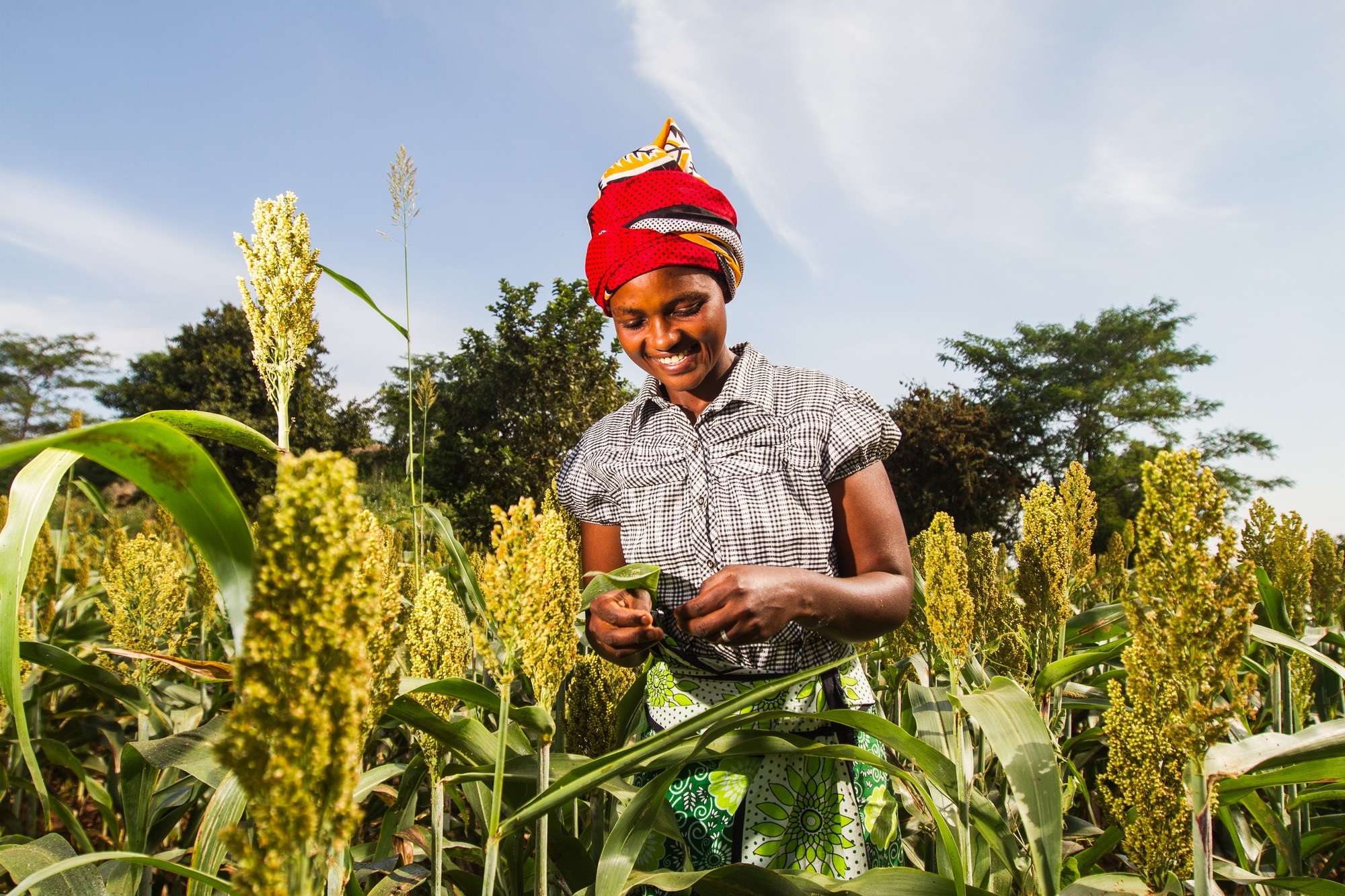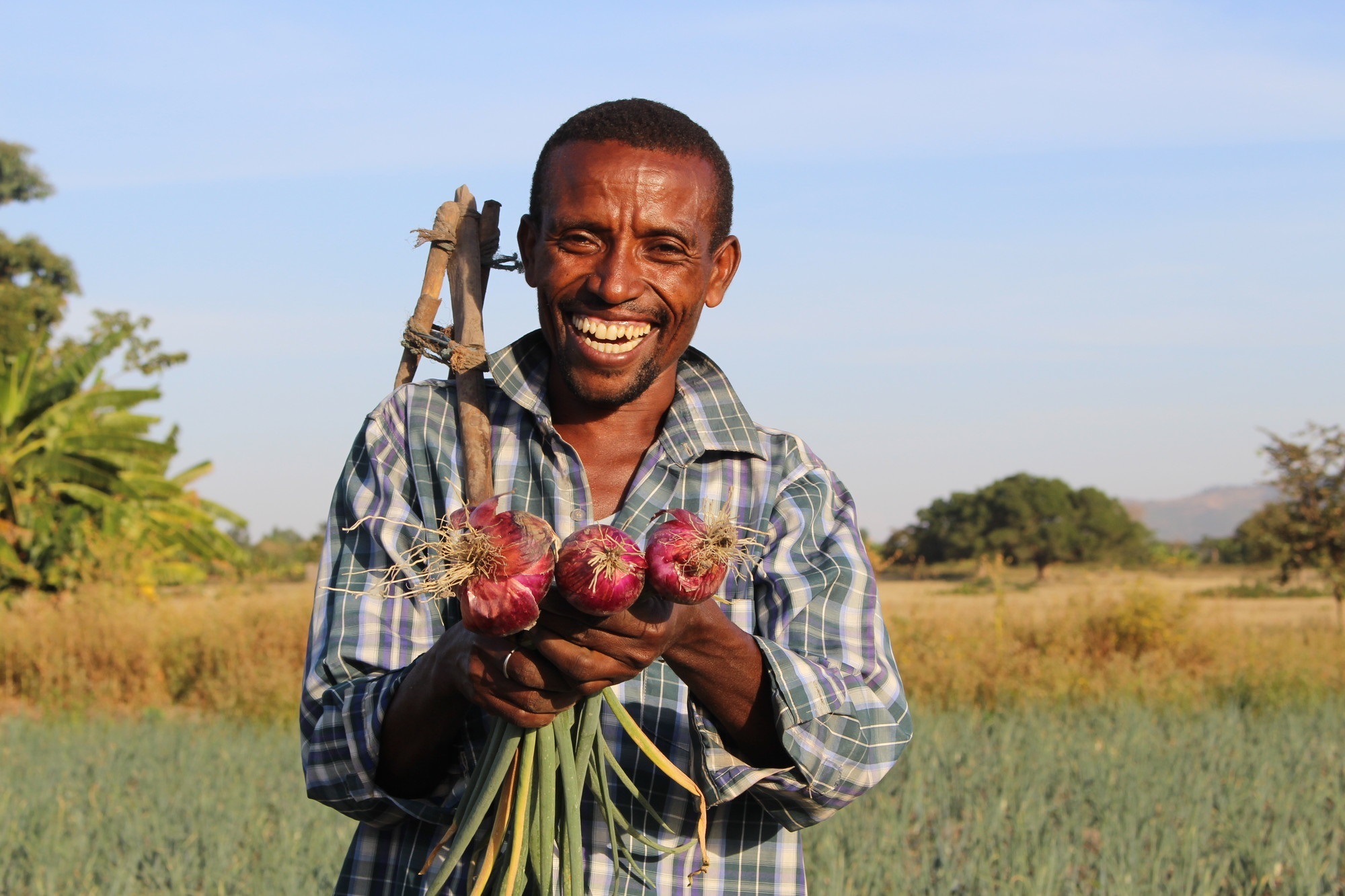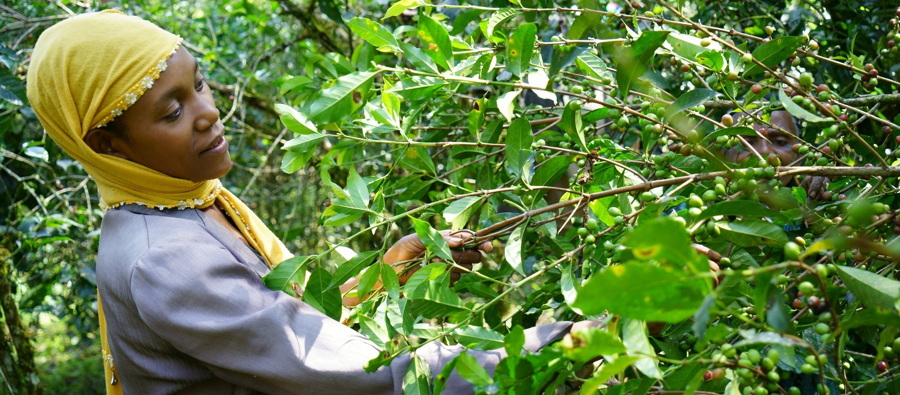Never before has the world asked so much from its farmers. The challenge of feeding a rapidly expanding global population in a changing trade and environmental landscape is a daunting task. Farmers are up to it but to succeed, they need support to sustainably increase production as well as certainty on trade agreements.
A recent meeting in London organised by Farm Africa, an international NGO working to grow farming in eastern Africa, and the UK’s National Farmers’ Union highlighted the importance of well-functioning supply chains to global food security.
Growing population
With the global population set to get bigger and more affluent, the world will inevitably continue to see a rapidly rising demand for food, begging the question whether the supply of food can keep pace.
Britain’s food self-sufficiency is projected to fall from 60 to 50% by 2040, whilst the UN’s Economic Commission for Africa reports that the continent imported 83% of its food in 2013, despite the majority of the population working in subsistence agriculture.

Agneta Mbithe, 25, of Kyakya Youth Group Kitui, Kenya tends to Sorghum crops. (Farm Africa/Mwangi Kirubi)
These statistics could easily set alarm bells ringing when it comes to outlook for food security here in the UK and in Africa. Indeed, commentators have long feared that the global demand for food will outstrip supply. But as Tim Smith, Group Quality Director at Tesco and Farm Africa’s latest board member, noted at the event: “Fifty years ago, commentators said it would be impossible to feed the population we have now. Yet between everybody working up and down the supply chain those naysayers have been proved wrong”.
Farmers and the agriculture sector as a whole are up to the challenge but the stakes have never been so high. Both the UK and Africa need a clear roadmap on how to achieve long-term, sustainable food security.
Pushing aside important caveats about scale, landscape and context, British and African farmers are facing similar food security challenges: the need to grow more, grow better and secure access to high-value markets.

A participant in Farm Africa’s climate-smart agriculture project in Ethiopia. (Farm Africa/Medhanit Gebremichael)
Growing more, growing smarter
At Farm Africa, every day we see first-hand how ensuring farmers are equipped with the right agronomic skills and high-quality inputs can boost harvests and profits. From our sesame project in Tanzania to our fish farming programme in Kenya, we’ve seen how yields can increase by 200 or 300% within the space of a year. These are much needed gains, given that African farms are performing at only about a quarter of their potential.
Meanwhile, British farmers’ productivity is failing to keep pace with other developed countries: the UK’s agricultural productivity is achieving an average annual growth of just 0.8%, highlighting the need for increased investment and innovation to enable agriculture in the UK to realise its potential.
In Africa, increasing volume only represents one side of the coin, quality is the flipside. Improving the quality of crops to meet the standards needed to penetrate export markets can provide poor farmers with a sizeable and steady income; a vital food security ingredient.
Yet smallholder farmers often need specialist support to make the step-change from subsistence to commercial agriculture. Across many of our projects we are supporting smallholders in developing the business and marketing skills they need to work with international buyers, as well as improving their access to high-quality inputs, such as certified seeds, necessary to meet export standards.
In a project we run in south-eastern Ethiopia helping forest communities to earn a living from the coffee that grows naturally under the shade of trees, we’ve helped 15 out of the 21 coffee cooperatives we work with to export directly to the international market, where their coffee beans will fetch a much higher price.
By making sure that the post-harvest handling, processing and marketing of coffee is the best it can be, we can make sure that coffee farmers can earn a better income from the coffee they produce, helping to bolster livelihoods and protect against food insecurity.
Providing trade certainty
Restrictive trade agreements, as well as poor infrastructure such as inadequate roads, can mean that even when yields are good and quality is high, farmers face challenges getting their goods to market.
Market access is of course of prime importance to British farmers with Brexit negotiations underway. With 73% of British agri food exports currently going to the EU, there’s no doubt that farming will be the most affected sector when the UK leaves the EU.
The lack of certainty about the markets to which British farmers will have access highlights the importance of a stable trading environment to both food security and farmers’ livelihoods.
“Farming is a long-term business. I, like many farmers, am making decisions now for beef products hitting the market in early 2020. Even with the best will and planning, I’m making these decisions not knowing the trading environment I’ll be operating in,” commented Minette Batters, Deputy President of the NFU at the recent Westminster Food & Nutrition Forum.
Regional trade is also high on the agenda in eastern Africa. While Tanzania and Uganda produce a surplus of staple crops, such as rice and maize, every year, Kenya only grows enough maize to feed itself one year in every five. Until recently, high tariffs on trade within eastern Africa have meant that it has been cheaper for Kenya to import crops from outside Africa. These policies have now changed, opening up new opportunities for regional trade.
Farm Africa is helping rural Ugandan and Tanzanian farmers make the most of this new export market, providing communities with the resources and knowledge to produce high-quality grain, store it safely and get top prices from the market. This not only helps boost the incomes of Tanzanian and Ugandan farmers, but helps secure affordable food for Kenyan consumers year-round.
While a prolonged drought has forced Uganda to employ short-term measures that halt the export of staple crops, Farm Africa is working to ensure that when farmers do achieve a surplus, they will be able to sell their crops regionally.
Degrading the environment degrades food security
It is common knowledge that mankind’s ability to feed itself is inextricably linked to the environment. Less widely recognised is that agriculture is also a major driver of climate change and environmental degradation. Resolving this tension through the adoption of sustainable agricultural practices will prove vital to ensuring the world’s long-term food security.
Both Africa and the UK face environmental problems driven by unsustainable agricultural production, ranging from water scarcity to soil erosion to deforestation and degradation of grazing lands, which threaten future agricultural productivity.
To secure agricultural productivity and livelihoods farmers must focus on sustainable agriculture that conserves the vital natural resources they rely on, as well as support and strengthen existing conservation efforts made by local rural communities.
Going forward
The British and African food and farming industries have more in common than first meets the eye. Global food security has much to gain from players at every stage of supply chains working ever more closely together to increase production, protect the environment and, crucially, ensure access to markets.
Learn more about Farm Africa’s work here or follow @FarmAfrica on Twitter. This post originally appeared in the March edition of the WFO’s F@rmletter.
Cover photo: Farm Africa/Stephanie Schafrath



